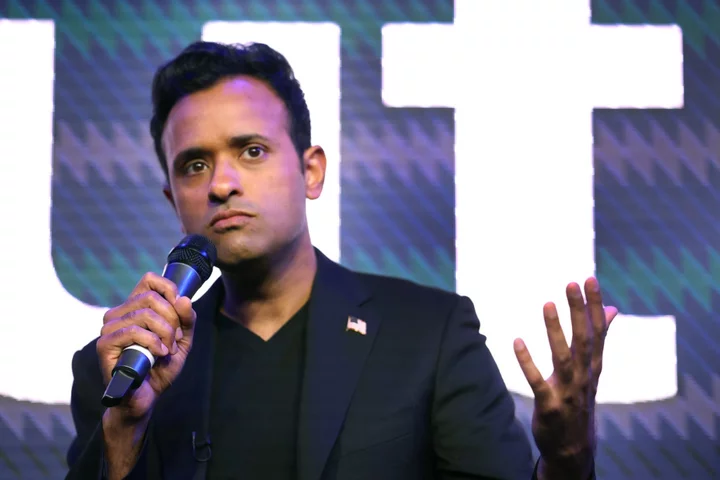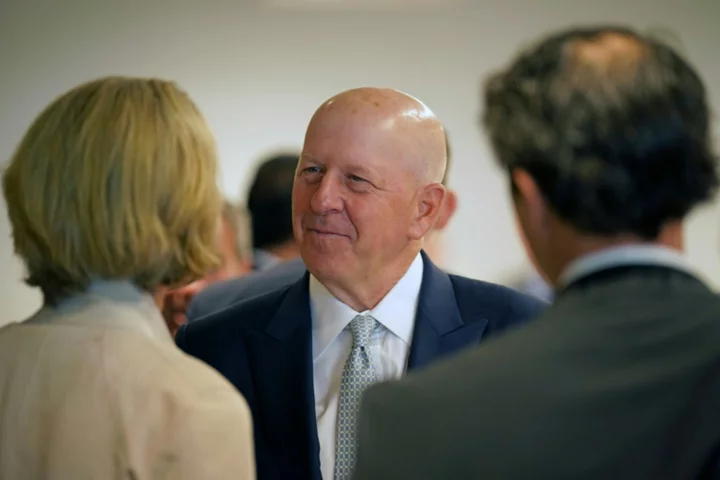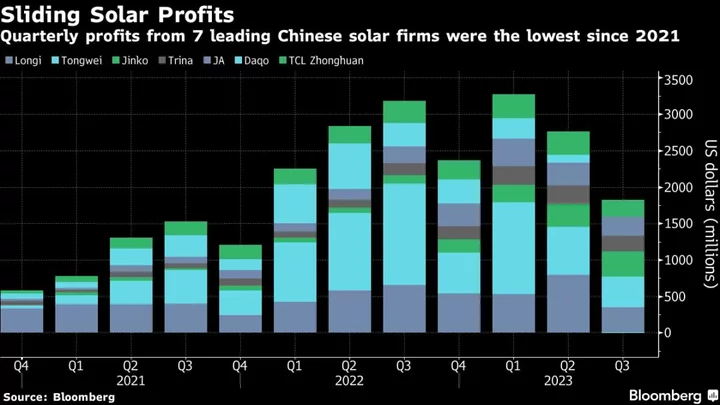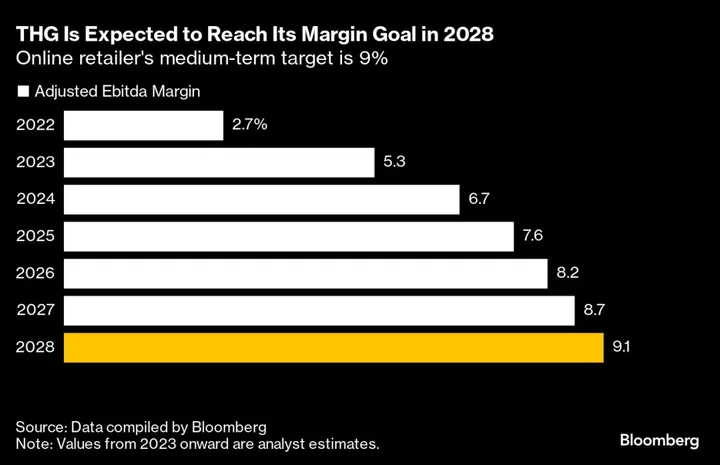Presidential candidate Vivek Ramaswamy’s call for mass deregulation of the cryptocurrency industry and drastic cuts to the Securities and Exchange Commission are the makings of crypto regulators’ nightmares, yet a version of that plan could be a reality if a Republican wins the White House.
Ramaswamy — who is polling in the single digits — is unlikely to become the 2024 Republican presidential nominee, but he has echoed many policy positions of frontrunner Donald Trump, teeing himself up for a potential high-profile spot in a GOP administration that could have significant sway over crypto.
Ramaswamy’s proposal would eliminate many of the few crypto regulations in effect and cut the SEC and other regulatory agencies’ workforces by 75%. That has raised alarms in the industry, particularly given its proximity to the criminal conviction of Sam Bankman-Fried following the implosion of his trading platform FTX and guilty pleas announced Tuesday from crypto exchange Binance Holdings Ltd. and its founder, Changpeng Zhao, on anti-money laundering and US sanctions violations charges.
The series of high-profile crypto misdeeds has prompted congressional lawmakers to pursue more oversight of the industry to protect consumers, making Ramaswamy out of step with members of both parties and many inside the industry who want a baseline of regulations to help legitimize the technology which has been subject to a wave of bad headlines over the past year.
“It’s not like there’s a ton of regulation now,” said Howard Fischer, a partner at Moses Singer and former SEC lawyer. “There is a perception of significant risk, and if there is no regulation whatsoever, I think that that’s going to lead a lot of investors and participants to shy away from the space.”
The 2024 election is the first presidential race where crypto has been treated as a serious policy issue, and Ramaswamy is the first Republican candidate to release a plan regarding the currency.
“The recent examples of large-scale fraud (e.g. FTX) reveal that the status quo is at once insufficient to protect ordinary investors, while also impeding innovation,” Ramaswamy said in a statement. “The policy principles that I announced – freedom to code, freedom to financial self-reliance, and freedom from regulatory overreach – are the first step toward a broader regulatory framework for digital assets.”
His campaign has financial backing from some in the crypto industry, including Gemini exchange co-founders Tyler Winklevoss and Cameron Winklevoss. Fred Ehrsam, co-founder of Paradigm Operations LP and Coinbase Global Inc., Bitgo co-founder Michael Belshe and Blockchain Association CEO Kristin Smith also donated.
Ramaswamy calls for a series of changes, including prohibiting federal agencies from creating restrictions on crypto wallets and clarifying that the Bank Secrecy Act does not govern blockchain infrastructure providers. These changes would likely involve input from Capitol Hill, meaning his plan can’t become law without the approval of lawmakers.
“This is not something that the executive branch can just do,” said Reena Aggarwal, director of the Psaros Center for Financial Markets and Policy at the Georgetown School of Business. “Congress would be involved in a big way, so it’s not reality.”
Those looking to influence a second Trump administration’s policy agenda are also looking to curb crypto regulation. The Heritage Foundation’s Project 2025, a comprehensive look at how a Republican White House should view policy, calls to shift crypto regulation away from the SEC and into the Commodity Futures Trading Commission, an agency that the industry believes to be more crypto-friendly.
Peter St Onge, an economist at the Heritage Foundation, said Ramaswamy’s proposal aligns with his employer’s view of the SEC, which he believes does not adequately fight fraud.
“They either become captured by the industries that they’re supposed to be policing, particularly salient in finance, or they justify their existence by creating these burdens that end up hurting the overall market,” he said.
Congress has begun to contemplate a more comprehensive framework for crypto assets. Senator Cynthia Lummis, a Wyoming Republican, and Senator Kirsten Gillibrand, a New York Democrat, have sponsored a bill viewed as taking an industry-friendly approach, and that Lummis has said “appropriately balances consumer protections while allowing innovation to thrive.”
“The crypto asset industry desperately needs clear rules of the road to protect consumers while encouraging innovation,” Lummis said in a statement. “Eliminating the few protections we currently have instead of installing additional consumer-focused guardrails would be a grave misstep.”
Senator Elizabeth Warren, a Massachusetts Democrat, has contemplated a more restrictive approach that would crack down on digital asset use, drawing connections to money laundering and sanctions evasion.
The SEC declined to comment on Ramaswamy’s proposal.
Voters themselves are also hesitant to let crypto exist rules-free. An April Pew survey found 75% of Americans who have heard of crypto are not confident in its safety and reliability.
“With the American people, crypto is toxic,” said Dennis Kelleher, CEO of nonprofit Better Markets who previously served on President Joe Biden’s transition team working with financial regulation. “American investors and customers have lost trillions of dollars in crypto over the last couple of years.”
--With assistance from Lydia Beyoud and Bill Allison.









